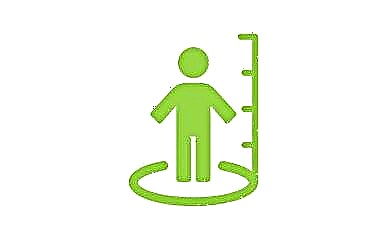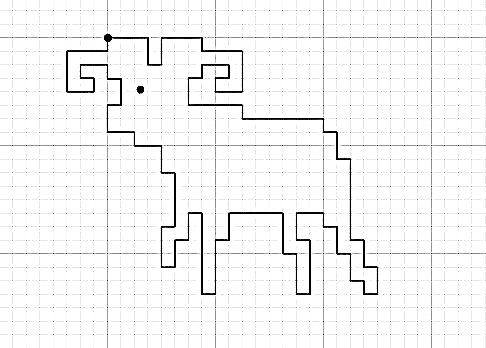The manifestation of allergies in infants directly depends on its pathogen. In some cases, unpleasant symptoms disappear immediately after the elimination of the provoking factor, in others, it takes some time to fully recover.

Child
Varieties of allergic reactions in children
How long newborn allergies last depends on the underlying causes. There are several types of negative reactions; in babies under one year old, they are most often associated with food. Food allergies usually occur to the protein of cow's milk, eggs, fish, some red fruits and berries, honey. Mom should also eat these products with caution if the baby is breastfed.
Allergies can begin after direct contact with an irritant. Symptoms begin to bother a baby if parents buy synthetic bedding or clothes that were made with dyes. The crumbs' body can react to washing powder, soap and other household chemicals.
Sneezing, watery eyes and rashes appear when the child is in a dusty, stuffy room. Do not smoke or spray chemicals near children. Even the strong smell of perfume can lead to unpleasant consequences. Allergy to animal hair, flowering plants usually begins in grown-up babies, at the age of 1.5-2 years.
How to recognize allergies
A negative reaction to an allergy pathogen manifests itself in different ways. Depending on what causes it, the duration of the symptoms is different. With direct contact with the allergen, the consequences occur immediately, within a few minutes. The reaction to food begins both within a few hours and the next day.
Note! It also depends on individual characteristics how much an allergic rash in a baby finally passes through. It can disappear after 2-3 hours or persist for several days or even weeks.
Symptoms in infants
With allergies, the baby may have the following symptoms:
- A digestive disorder such as diarrhea or mucus in your stools;
- Abdominal pain;
- Nausea and vomiting;
- Redness of the eyes, tearing;
- Sneezing, mucous nasal discharge;
- Swelling in the mouth
- Rash on the cheeks and body. She may not bother or itch, itch. For example, if you are allergic to starch on the face and hands, hives develop. In severe cases, with a strong sensitivity to food, eczema occurs. The skin becomes edematous, reddens, itchy crusts form on it, most often weeping.

Allergic rash in infants
In a baby of the first month of life, an allergy usually occurs if the mother ate a prohibited product, when the baby is on gv, or with a sharp transition to milk formula, a constant change of product brands. At the same time, a rash and irritation appear on the skin of the crumbs, it often spits up after feeding, the stool becomes liquid.
Diagnostics
To determine the factor provoking undesirable manifestations, the patient is usually referred for allergy tests. They are contraindicated for infants. During the procedure, scratches are left on the hand, then interaction with the allergen occurs. In order to exclude the deterioration of the baby's condition, it is better to refuse such manipulations. The baby can donate blood for antibodies. This is a kind of test that allows you to refute or confirm an allergy and, if necessary, find out what caused it.
How to calculate the allergen
In case of contact allergies and negative reactions to odors, you can find the culprit by analyzing the current day. Suffice it to recall what was worn on the baby, where he was, to think whether household chemicals of an unknown brand have not been purchased recently.
For food allergies, it is recommended to keep a diary in which you need to write down everything that the baby and mother eat:
- For the first time, you will have to exclude all products that are in doubt. It is necessary to cook and offer the crumbs only low-allergenic food (these are buckwheat and rice in water, green vegetables and apples);
- After 3-4 days, add a new product, observing the reaction. If the state of health does not suffer, gradually increase the portion;
- A new vegetable or fruit can be introduced only after a few days, when the mother is sure that everything is in order with the child. Each product must be recorded, indicating the time of its use and the amount.
How much the allergen is removed from the baby's body depends on the metabolic rate, the state of its immunity and the amount of the product that caused the negative reaction. Don't rush when introducing new dishes. When the crumb tastes half a teaspoon of a product that is not suitable for him, it will be easy to cope with unpleasant manifestations.

Portion for the first feeding
Elimination of provoking factors
You can get rid of rashes, sneezing, nasal discharge and other symptoms by removing the allergen. Antihistamines will only decrease the reaction, reduce swelling, or soothe itching. Treatment consists of getting rid of the pathogen. If it remains in the body or reappears, the reaction will repeat itself and may intensify. When a child tastes raspberries for the first time, it may happen that no change occurs. The immune system has memorized the product, the cells have developed sensitivity to it and the next time they will react with rashes or other undesirable signs.
Note! If the child's parents are prone to allergies, then you need to carefully consider his diet, get rid of dust in time, purchase high-quality detergents and cleaning products. The predisposition to negative manifestations is genetically laid.
When allergies go away
How long does an allergy go through in a baby after the allergen is canceled, depends primarily on the degree of damage. When you stop using a product that causes a negative reaction, the situation does not worsen after the moment it is removed. As soon as the immunity realizes that the foreign object is no longer dangerous, it stops responding.
Metabolic processes in children occur fairly quickly. Poisonous substances usually leave the body within a few days. External manifestations persist, especially for the rash. It takes some time for it to disappear and the skin to recover. Redness may persist for several hours if the lesion is mild, or persist for 2-3 weeks.
How long does an allergic rash on a baby's face last depends on the actions of the parents:
- Care includes the use of creams, ointments. The main thing is to exclude the fact that the rash is a manifestation of an infectious disease;
- On the advice of your doctor, you can use anti-itch products. It is dangerous if the child scratches the rash. When wounds appear on the skin, there is a risk of a bacterial infection, which is more difficult to treat.
How much the allergy on the cheeks of the baby goes away forever, also depends on the behavior of the baby's mom and dad. After treatment and the disappearance of the rash, you need to protect the baby from the pathogen for at least six months. Then there is a high probability that when faced with an allergen at a later age, the body will react to it calmly. Unpleasant symptoms will not appear. Often, children outgrow allergic reactions, especially to foods, they are a thing of the past.
Note! When a baby sneezes in a dusty room, his eyes water and redden, then he just needs to leave the room. The symptoms will go away almost immediately.

Baby sneezes
Caring for an allergic baby
If a child is prone to allergies, caring for him, you need to follow the recommendations:
- Do not start complementary foods earlier than six months;
- Avoid visiting parks and squares during the flowering period. At this time, it is better to go outside after rain and in calm weather;
- Buy pH neutral bath products. Defend water for washing. Use moisturizers after a shower;
- Air the room every day and do not forget about wet cleaning;
- Avoid taking medications with dyes and flavors;
- Do not bring pets to the apartment;
- Choose underwear and clothing made from natural fabrics. Iron on both sides before use.
To understand how to cure food allergies in babies, to bring the moment when it passes, you need to calculate the provoking factor. Without its elimination, it will not be possible to normalize the baby's condition. Soreness, accompanied by unpleasant symptoms, will last until the allergen leaves the body. Even after that, it will take some time for the signs of inflammation to completely disappear.



